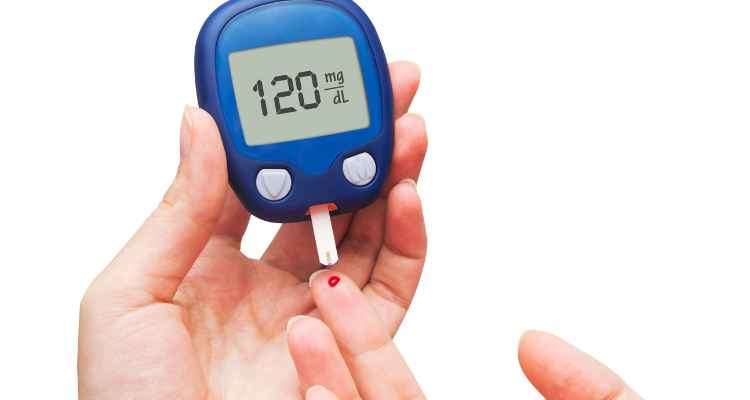Diabetes, a chronic disease, does change one’s life forever. When diagnosed with it, you have to change some things in your life, one of them being watching everything you eat and making sure to maintain stable blood sugar levels.
But does this mean a diabetic should avoid sugar completely? No. While it’s necessary for a diabetic to monitor the sugar and carbohydrate intake to keep the blood glucose in check, a little sugar won’t harm when taken as part of their diet.
This post goes deeper on why a diabetic doesn’t need to avoid sugar completely and the sugar alternatives available.
Should a Diabetic Avoid Sugar Completely?
No! According to the American Diabetes Association, people with diabetes can consume sugar and sugary foods as part of a balanced diet, but in moderation.
It’s important to keep track of carbohydrate intake and monitor blood sugar levels regularly to determine how much sugar can be consumed safely. That’s why you will see even reputable brands that sell diabetic supplies offering some sugar alternatives ideal for diabetic diet.
However, it’s also important to note that consuming too much sugar can lead to spikes in blood sugar levels and potentially cause complications for those with diabetes. Therefore, it’s recommended to limit added sugars in the diet and opt for natural sources of sweetness such as fruits.
The Truth about Sugar and Diabetes
While it’s a common belief that consuming too much sugar can lead to diabetes, the truth is a bit more complicated. There are two main types of diabetes – type 1 and type 2 – and sugar does not cause type 1 diabetes.
However, evidence suggests that consuming excessive amounts of sugar can increase the risk of developing type 2 diabetes.
So, what exactly does sugar do to your body? When we consume sugary foods or drinks, our blood sugar levels spike. In response, our pancreas releases insulin to help regulate our blood sugar levels.
Over time, if we consistently consume high amounts of sugar, our body may become resistant to insulin, leading to high blood sugar levels and potentially resulting in type 2 diabetes.
But it’s not just diabetes that excessive sugar consumption can lead to. Consuming too much added sugar has also been linked to obesity, heart disease, and other health problems. It’s important to be mindful of the added sugars in our diet and try to limit them as much as possible.
Are There Any Risks Of A Diabetic Avoiding Sugar Completely?
Eliminating all sugar from your diet can lead to nutrient deficiencies and negatively impact your mental health. Here are risks associated with eliminating sugar from the diet of diabetics.
Increased Risk of Nutrient Deficiencies
Eliminating all sources of sugar from the diet can lead to nutrient deficiencies. Many foods that contain added sugars also provide essential nutrients like fiber, vitamins, and minerals. By cutting out these foods completely, diabetics may miss important nutrients necessary for overall health.
Difficulty Maintaining a Balanced Diet
Eliminating sugar from the diet can make it difficult to maintain a balanced diet. This is because many healthy foods like fruits and dairy naturally contain sugars. Cutting out these foods completely can make getting all the necessary nutrients for good health challenging.
Increased Risk of Binge Eating
Completely eliminating sugar from the diet can lead to cravings and binge eating episodes. This is because when you restrict yourself too much, you may overindulge when given a chance. Binge eating can lead to weight gain and other health problems.
Diabetic Sugar Alternatives
Sugar cravings are real and can be especially challenging for individuals with diabetes. However, many sugar alternatives can satisfy your sweet tooth without spiking your blood sugar levels. Here are some of the best options:
Stevia
Stevia is a natural sweetener that comes from the leaves of the stevia plant. It has zero calories and does not affect blood sugar levels, making it a great option for people with diabetes. Stevia is also much sweeter than regular sugar, so you only need to use a small amount to get the same level of sweetness.
Monk Fruit Extract
Monk fruit extract is another natural sweetener with zero calories and does not affect blood sugar levels. It is made from monk fruit juice and is up to 200 times sweeter than regular sugar. Like stevia, you only need to use a small amount to get the desired level of sweetness.
Erythritol
Erythritol is a sugar alcohol that occurs naturally in some fruits and fermented foods. It has about 70% of the sweetness of regular sugar but only contains about 6% of the calories. Erythritol does not affect blood sugar levels and is safe for people with diabetes to consume.
Conclusion
In conclusion, diabetics don’t need to avoid sugar completely but should focus on moderation and portion control. By incorporating complex carbohydrates into their diets while limiting their intake of added sugars, diabetics can maintain healthy blood glucose levels while still enjoying the occasional sweet treat.
Remember that balance is key when it comes to managing diabetes through diet. When choosing a sugar alternative, it’s important to read labels carefully and choose products that do not contain added sugars or artificial sweeteners like aspartame or saccharin.

